Dr. Cindy Cruz
Associate Professor of Education
Teaching, Learning and Sociocultural Studies
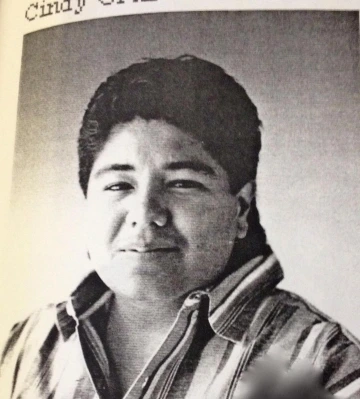
Dr. Cindy Cruz’s research focuses on the embodied practices of resistance in homeless LGBTQ youth communities. Her work engages decolonial feminist theory, implements community-based learning, considers the relationship between race and schooling, and applies frameworks from U.S. Third World feminism.
Dr. Cruz said in a recent interview, “Working with street youth, you see the way different forms of oppression become compounded. Still, ... I do not want to write these representations of young people as victims ... As a resistance researcher, I strive not to create an index of oppression where narratives become inscribed onto the bodies of young people: narratives of poverty, oppression, homophobia, and homelessness. I had to really rethink how I was representing young people so that I was not reifying these deficit narratives. Documenting resistance gives a multidimensional representation of the experiences of the young people I am engaging with. Wherever there is power, there is resistance. I aim to document that there are ways students are saying no to domination within these spaces, even through the smallest gestures.”
Dr. Cruz's article "LGBTQ Street Youth Talk Back: A Meditation on Resistance and Witnessing" was named Article of the Year by the Queer Studies Special Interest Group of the American Educational Research Association (AERA) and the Antonia I. Casteneda Prize from the National Association of Chicana and Chicano Studies.
In Dr. Cruz’s article "Toward an Epistemology of a Brown Body," Dr. Cindy Cruz writes on her experiences as a Chicana lesbian. Her current projects include gentrification, mobility, surveillance, and the use of geo-spatial applications amongst homeless queer and trans* youth. In a previous life, Cindy was a high school English teacher and HIV counselor, and this experience greatly influences her research and pedagogy.
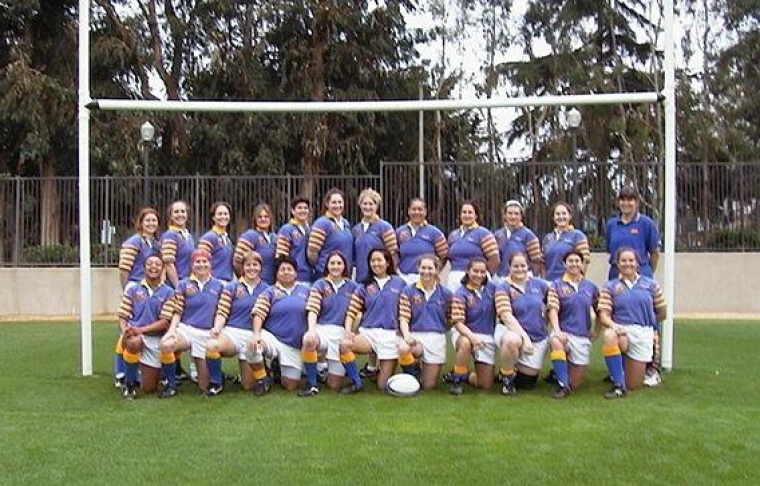
“I see our futures in these students.”
What personal challenges have you faced, or continue to face, as you progress in your academic career in teaching, research, and/or the broad range of service you provide in your position?
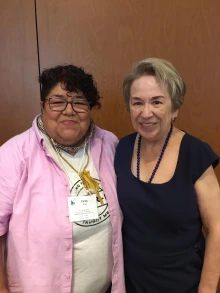
- When I began a graduate program, I really didn’t know I’d get a PhD–I was a teacher in LAUSD (Los Angeles Unified School District) and loved the work with the Community-Based Learning Collective, and I just thought I’d get a master's and work in creating experiential, critical interdisciplinary curriculum for the district. I came to grad school with lots of experiences working with queer and trans youth, teaching through the Rodney King riots, the earthquake, and other unnatural disasters that happen in L.A. and witnessed how resilient the city is. I have had great mentors around me–Kris Gutierrez, Sonia Saldivar-Hull, Peter McLaren, Sofia Villenas, and I’ve been fortunate to have had a pretty straightforward process as a grad student at UCLA to an assistant and associate professor at UC Santa Cruz and at my new home at the University of Arizona.
- I do so enjoy mentoring students at both the undergraduate and graduate level. And I’ve always attracted a lot of graduate students who want to work with me–and this is my big challenge–I often have more than a full plate when it comes to grad students. My commitment is to recruit, fund, and graduate first-gen students of color, queer and trans students, and particularly Latinx students. I secretly hope that, with every doctoral student that graduates, they change the university (even in these times) a little bit at a time.
- My second challenge is to find time to write my book about Hollywood queer and trans* street youth and technology.
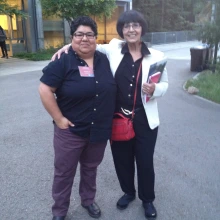
What aspects of inclusion does your work address?
- I work with homeless queer and trans* youth in Hollywood, California. My theoretical frameworks center the theories of U.S. feminists of color and I use testimonio, reflexive ethnography, and decolonial methodologies to help me think about the stories I am offered by youth. I am very concerned with deficit portrayals of urban youth and homeless communities in the social sciences, and I enact Maria Lugones’ notion of a faithful witnessing in my research with humans to move away from the dichotomous thinking that makes youth one-dimensional.
I grew up in a steel town where very few of us, like 6 out of 800 students in my class, got a chance to attend college. I am always concerned how Latinx, queer, trans*, and working-class students of color are represented. I think that’s why I love putting in my Thursday afternoons at Sunnyside High School for the Banned Book Club and for the Sin Agua No Hay Vida Environmental Justice Project with Julio Cammarota and Caren Zimmerman. I see our futures in these students at Sunnyside. So few of us get a chance to attend college–my work has been to help high school students prepare for college, affirm their dreams of wanting good critical knowledge, be artists, musicians, scientists, teachers, engineers, poets, or anything else they want to be. Most of my life’s work was to teach and organize these college prep spaces like the East Los Angeles Community Union’s Upward Bound, Long Beach City College’s Upward Bound or teach freshperson writing and composition in the huge EOP summer program at UCLA, or even the migrant leadership program, where the sons and daughters and others of Central California farmworkers did a summer session of critical thinking and writing. This is my work–always with students who are taking a huge chance to do something different in their lives, including youth who leave home for many different reasons. Let me help in any way I can.
What words of advice or inspiration would you like to share?
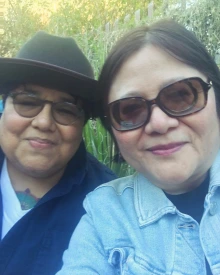
- Bring your “A” game to every class, every meeting, every chance you get to strut your stuff.
- Writing is thinking–it gets better every time you do it. Look forward to feedback from your friends and colleagues.
- Read–a lot. Buy the books. Make a library.
- Remember why you are getting the PhD.
- Have a hobby and friends who are outside of the University.
- Write every day.

